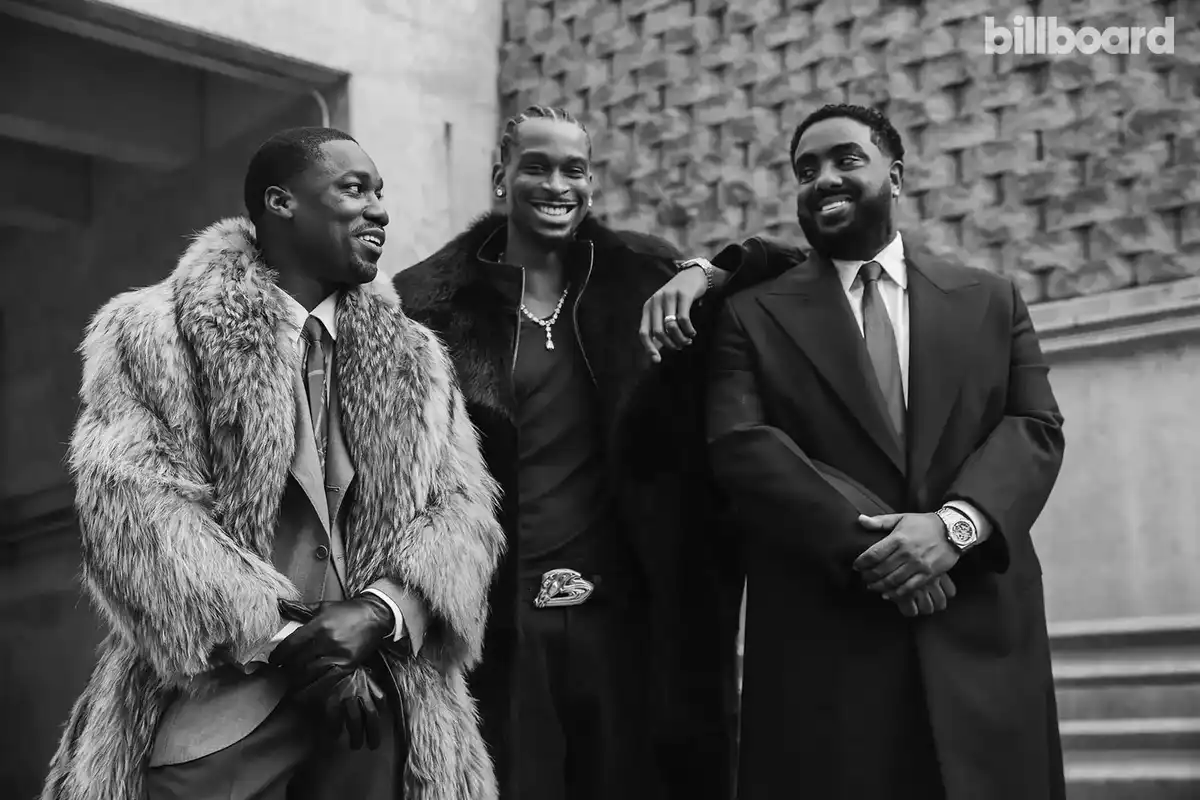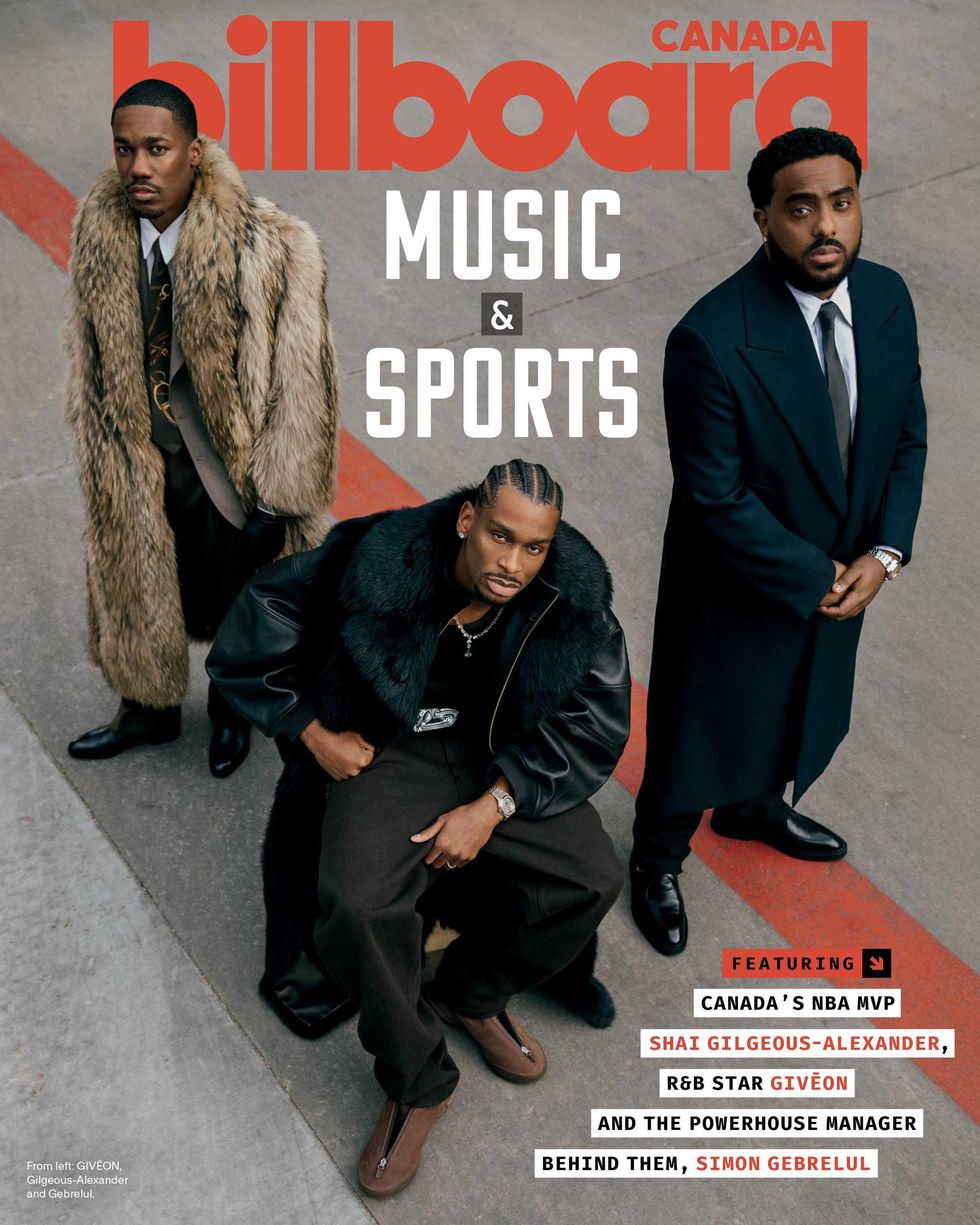POP Montreal Explores the Future of Latin Music in Canada
As part of the free POP Symposium, the festival took a deep dive into the booming wave of Latin music, unpacking its rise in Quebec, across Canada, and worldwide. The conversation wasn’t just about celebrating the sound — it was about finding ways to support and amplify the movement locally and globally.

Ximena Holuigue, organizer of the Future of Canadian Latin Music panel at POP Montreal.
Latin music is growing in popularity in Canada. At this year’s festival, POP Montreal explored how Quebec can meet and support the demand.
On Sunday (September 29), the POP Symposium, the free conference within the music festival, hosted a dynamic panel called The Future of Canadian Latin Music: Rising Latinx Artists and Music Entrepreneurs at the Clubhouse Rialto. The event brought together some of the most influential voices in Montreal's Latin music scene to discuss the global wave of Latin music and its impact on the Canadian and Quebecois scenes. They explored the challenges and opportunities for Latin artists, as well as the new ways of expressing the wide and diverse Latin culture without pigeonholing it in “world music” categories.
Eve Parker Finley, director at Pop Symposium, emphasized the importance of community involvement, stating, “When Ximena [Holuigue] approached me to do this panel, I wanted the community to decide the topics. I believe it’s crucial for communities to create their own spaces and share their stories.” She further highlighted that indie music encompasses more than just pop and rock, extending to various cultural communities, even in the context of a festival like POP Montreal.
Moderated by Steven Dagenais Narvaéz, a prominent figure in the cultural industries with expertise as Market Coordinator for MUTEK and Curator of Professional Content at Mundial Montreal, the discussion highlighted exciting innovations and challenges within the Quebec scene.
The panel showcased a lineup of trailblazers ushering in a new generation of artists and entrepreneurs poised to shake things up in the Latin music scene. Among the panelists were JACE Carrillo, a Venezuelan-Canadian pop artist known for his genre-defying sound; Ximena Holuigue, a cultural advocate dedicated to elevating Latin talent through her organization, ISLAS; Alexandra Idiart-Benavides, co-founder of The Vault, who connects artists across North America and Europe; Aldo Stephano Ramírez, co-founder of Núcleo, emphasizing the empowerment of the Latin community through the arts; and Lu B, a Montreal maestro and co-founder of Frikiton, celebrated for his unique blend of underground and Latin rhythms.
Here are some highlights from the insightful discussion.
Latin Music as a Global Phenomenon
“Latin music is a global phenomenon. We’ve seen it in the U.S. and South America, and with the globalization of music, it's only expanding. You no longer need to be in Mexico to enjoy Mexican music,” explained Alexandra Idiart-Benavides.
Like other global genres, Latin artists are crossing borders and language barriers to achieve cultural prominence, she said. She pointed to the recent addition of a South Asian category at the Junos, an addition that belatedly recognizes the impact of the music in Canada – termed the Punjabi Wave in Billboard Canada’s initial digital cover story – and suggested something similar could happen with Latin music.
“That’s huge, especially with the surge in Punjabi music. It was amazing to witness, as I believe some diaspora music truly deserves recognition from Canadian institutions. When you look at the numbers, Punjabi music is fascinating, and I feel that Latin music could follow a similar trajectory to forge a new future.”
She also highlighted the growing presence of Latin music festivals in Canada, like Montreal’s Fuego Fuego, which have been pivotal in showcasing the genre's vibrancy. “Festivals like these prove that Latin music isn’t just resonating with Latinx communities but also capturing the hearts of a wider audience. This kind of cultural celebration is what will propel Latin music into mainstream recognition here.”
Aldo Stephano Ramírez echoed this sentiment, stating, “There is a growing demand for Latin acts in the country and especially in Montreal. More and more non-Latin people are enjoying Latin music and its diverse genres.” He highlighted how the global success of Latin artists, along with the vibrant diaspora in Montreal, has helped democratize Latin music.
Ramírez emphasized that increased visibility plays a critical role in the genre’s popularization. With international superstars like Bad Bunny, Rosalía, and J Balvin gaining mainstream attention, Latin music has transcended cultural and linguistic boundaries, appealing to a broader audience. In Montreal, where diversity is celebrated, the local Latin music scene benefits from this global momentum.
The Importance of Funding
Ximena Holuigue highlighted the challenges Latin artists face regarding representation and funding access. “For all Latinx artists, your music is a product,” she stated. Even if the music is good, she emphasized, Latin artists and executives are underrepresented in Canada’s management and labels. While grant funding can be beneficial, she warned emerging artists against over-reliance, advising them to view grants as a "springboard" for their careers. She stressed the urgent need for support.
A significant barrier for artists seeking grants is the need for skilled grant writers familiar with cultural applications, which is something ISLAS is committed to facilitating. “Grant writing has its own language,” she noted. “It’s essential to understand how your music aligns with available programs.”
Holuigue addressed a broader issue affecting artists from diverse backgrounds, including Latinx, Black, Arab and Indigenous artists: the difficulty of categorizing their work within overly rigid grant programs. “Many have to choose ‘world music’ as a category, even when it doesn’t fit. For instance, how does one categorize a Latin artist creating R&B or soul music in Spanish?”
Singer JACE Carrillo criticized the limitations of the "world music" category, which forces artists to compete instead of being showcased within their own genres. “World music? I don’t even know what that means,” he laughed. “I don’t want to compete with other Latin artists; I want us all to thrive together.”
Alexandra Idiart-Benavides urged Quebec's Latin artists to seek opportunities beyond local avenues. “Spanish is a global language,” she said. “There are many labels in Spain, the U.S., and South America eager to sign artists. Moreover, Latin artists can explore income streams through brand collaborations and social media. Although the Canadian scene has been slow to adapt, change is on the way.”
Celebrating the wide spectrum of Latin identities
DJ Lu B offered an insightful glimpse into the vibrant Latin underground scene in Montreal, highlighting the increasing demand for diverse Latin parties and events. “For many years, there was only one type of event, and not everyone in the community felt safe, especially with alcohol involved,” he explained.
Lu emphasized the significant role that the Latinx scene and collectives like Discoňo, Pikete, Kadera, Porqueria, Venono, plzrs and Frikiton have played in diversifying and expanding the local party landscape. He mentioned artists such as Daniela Andrade, Isabella Lovestory, Jashim and MATEO, who are at the forefront of blending new sounds from the alternative Latin community.
“We’re creating a fun and inclusive atmosphere, organizing parties in secure spaces where everyone can enjoy Latin urban music,” Lu added.
He also noted the current boom in Latin house sounds emerging from southern Spain and South America, showcasing blends that fuse electronic music with influences from new generations.
“The Latin identity is expanding in exciting ways worldwide, and it’s inspiring to see Latin artists excelling across different musical genres and visual styles” said Aldo Stephano Ramírez. “Aesthetically, the old stereotype of the Latin ‘ghetto’ or ‘ratchet’ image is evolving into much more varied portrayals. We’re reshaping how we share our culture and tell our stories, embracing new and innovative ways to express our values.”
In Canada, the vibrant Latin music scene, driven by a growing diaspora and younger generations, presents significant potential for recognition and diversity. As artists navigate these challenges, their collective efforts signal a promising future where diverse musical identities are celebrated, contributing to a more inclusive and dynamic cultural tapestry in Quebec and beyond.
- As Latin Music Grows in Canada, Live Nation Aims to Take It Across The Country ›
- POP Montreal Unveils First Names For 2025 Edition: Isabella Lovestory, U.S. Girls, Lankum & More | Billboard Canada ›
- POP Montréal lève le voile sur sa programmation 2025 avec Isabella Lovestory, U.S. Girls, Lankum et plus encore ! | Billboard Canada ›


















 Simon GebrelulDiwang Valdez
Simon GebrelulDiwang Valdez Shai Gilgeous-AlexanderDiwang Valdez
Shai Gilgeous-AlexanderDiwang Valdez GIVĒONDiwang Valdez
GIVĒONDiwang Valdez